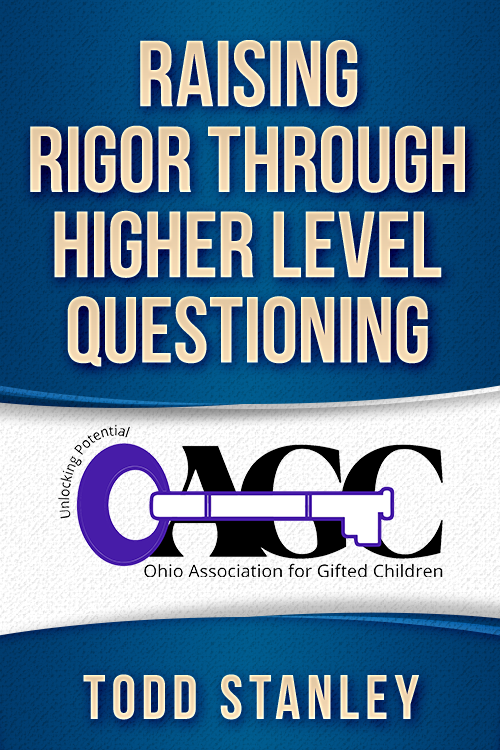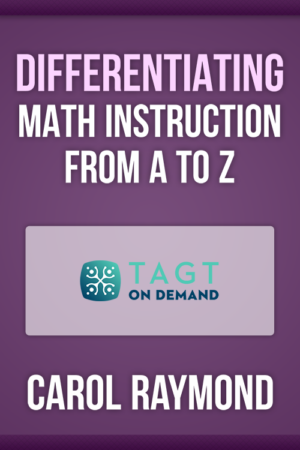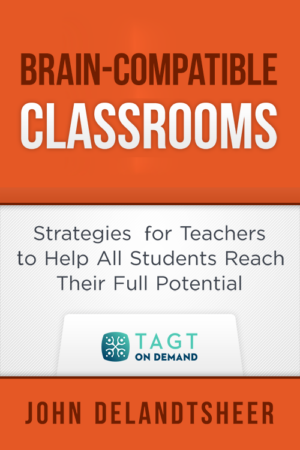Description
In this 1-hour course you will discover:
- How to identify the level of questions used in class discussions and assessments
- How to conduct an audit of classroom questioning practices
- How to modify low-level questions to become higher-level questions
ODE Competencies: a, b, c, g
Click here for a leader’s guide created by the Ohio Association for the Gifted and Talented.
Presenter Bio
Todd Stanley is the author of 12 teacher education books including Project-Based Learning for Gifted Students: A Handbook for the 21st Century Classroom, and his latest When Smart Kids Underachieve in the Classroom: Practical Solutions for Teachers. He served as a classroom teacher for 18 years and is currently the gifted services coordinator for Pickerington Local Schools where he lives with his wife and two daughters. You can follow him on Twitter @the_gifted_guy.







Anita – WESLACO ISD (verified owner) –
Good ideas
Celina – UNITED ISD (verified owner) –
Great information
Gabriela – WESLACO ISD (verified owner) –
This is a quick view of how incorporate higher level questions in the classroom. It describes the verbs you need to use and provides examples that you can relate to. A great course if you need to improve the rigor in your lessons.
Lisa – WESLACO ISD (verified owner) –
Enjoyed the session, very informative.
DANIELA – WESLACO ISD (verified owner) –
Great course that helps with questioning in the classroom.
Maureen – WESLACO ISD (verified owner) –
Impressive!
Jonathan – WESLACO ISD (verified owner) –
Great way to help develop particular type of questions in order for some really good class conversations and in depth comprehension
Rachel – WESLACO ISD (verified owner) –
I like all the various ways of asking higher order thinking questions that he gave.
Jennifer – MCALLEN ISD (verified owner) –
I thought the presenter did a great job of providing specific examples.
steve – WESLACO ISD (verified owner) –
well developed and enlightening. many self-reflecting questions on how we as teachers use higher order thinking questions in our classrooms.